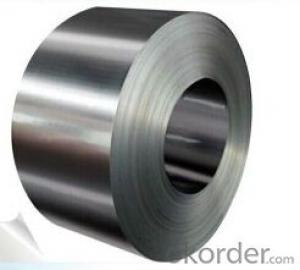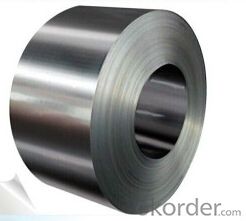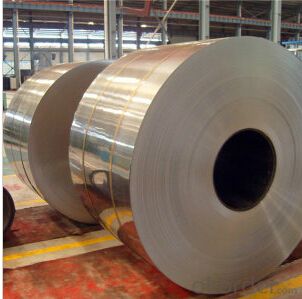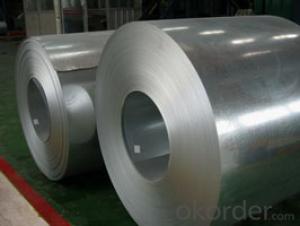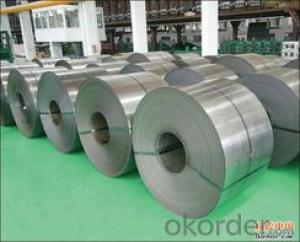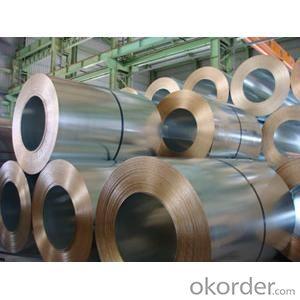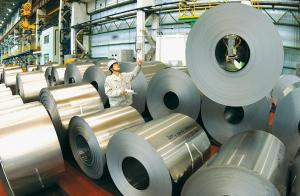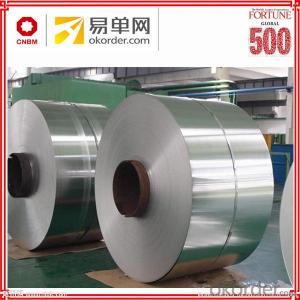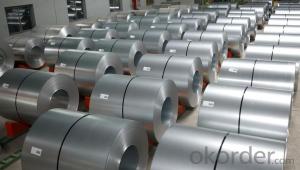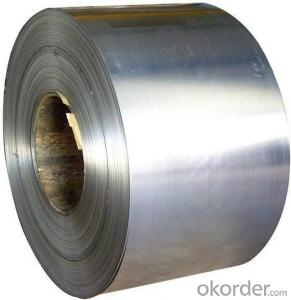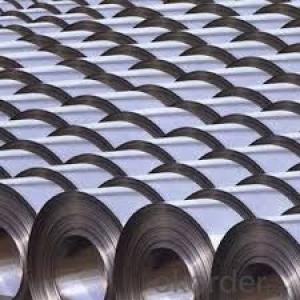Continuous Black Annealed Cold Rolled Steel Coil
- Loading Port:
- Shanghai
- Payment Terms:
- TT OR LC
- Min Order Qty:
- 25 m.t.
- Supply Capability:
- 50000 m.t./month
OKorder Service Pledge
OKorder Financial Service
You Might Also Like
Cold Rolled Steel Coil description:
Standard:AISI,ASTM,BS,DIN,GB,JIS
Steel Grade:Q195
Thickness:0.4-1.5mm
Technique:Cold Rolled
Surface Treatment:Black annealed
Application:Pipe or tube making
Model Number:steel coils in black for pipe
Width:820-1250mm
Length:As requested
cold rolled steel coil specification:
Material:Q195,Q235,DC01-06,SPCC,SPCD,SPCE,
SPCC-SD,SPCC-1B,
ST12-14,SAE1006,SAE1008
Standard:JIS G3141-2005, EN 10131-2006, DIN EN 10130,ASTMA653,GB/T 5213-2008
Coil ID:508mm, 610mm or per customer's request
FAQ:
Acceptable payment term and way?
T/T,L/C, T/T + L/C, D/P
Acceptable price term
FOB CNF CIF DDU CPT
Do you accept OA payment terms?
Yes, sure, but it normally depending on the order value
Do you have QC team?
Yeah, sure, our QC team is very important, they will keep the qualitycontrol for our products.
What is the validity of your quotation?
Normally 7 days.
What is your advantage?
24 hour quick response /Customer oriented/ Credit foremost/ Top quality Excellent
What is your acceptable payment term?
TT,LC,OA etc
Thanks for your interest in our continious black annealed steel coils
- Q: Having a greater amount than 2% carbon in steel causes steel to suddenly become brittle. Why is this?
- Carbon fiber has better tensile capability then steel meaning its better while pulled aside. Plus you could mould the fiber to make autos-or homes-out of carbon fiber.
- Q: Where do I need hot galvanized steel coils and color coated rolls?
- The use of galvanized steel for color coated steel substrates, except zinc protection, organic coating on the zinc layer up covering the isolation effect, can prevent rusting steel, galvanized steel service life is longer, the coating steel plate galvanized steel long service life is 50%. However, the service life of the color coated plate with the same amount of zinc coating, the same coating and the same coating thickness will vary greatly in different regions and different parts.
- Q: What are the different types of steel surface finishes for coils?
- There are several types of steel surface finishes for coils, including hot rolled, cold rolled, galvanized, coated, and pickled and oiled.
- Q: What is the difference between steel coils and steel sheets?
- Steel coils and steel sheets, although both forms of steel, exhibit distinct differences. Steel coils, which are long rolls of steel wound into a coil shape, are typically produced at a steel mill and serve as raw materials for further processing or manufacturing. Various industries, including automotive, construction, and appliance manufacturing, commonly utilize steel coils in the production of items such as pipes, tubes, and automotive parts. Conversely, steel sheets are flat pieces of steel that are typically derived from steel coils. These sheets come in different sizes and thicknesses, making them versatile for various applications. Construction projects, such as roofing, siding, and structural components, often employ steel sheets. Additionally, they are utilized in manufacturing processes like stamping, forming, and fabricating diverse products. One primary distinction between steel coils and steel sheets lies in their shape and form. Steel coils adopt a cylindrical, rolled form, whereas steel sheets possess a flat, rectangular structure. This dissimilarity in shape renders steel coils more suitable for continuous production processes, while steel sheets find application in scenarios that demand flat surfaces. Another variation pertains to the handling and transportation of these steel forms. Due to their large size and weight, steel coils necessitate specialized equipment like coil cars or cranes for transport and storage. Conversely, steel sheets can be conveniently stacked, transported, and stored using conventional methods. Lastly, the processing requirements for steel coils and steel sheets differ. Steel coils often undergo additional processing steps, such as slitting, cutting, or coating, to meet specific customer requirements. Conversely, steel sheets may require minimal processing before being utilized in their intended applications. In summary, steel coils and steel sheets exhibit variances in shape, handling, transportation, and processing requirements. Steel coils, in their rolled, cylindrical form, are utilized for further processing, while steel sheets, cut from coils, serve specific applications. Recognizing these distinctions is crucial when selecting the appropriate steel form for a particular project or manufacturing process.
- Q: I am doing an assignment for my materials class, im not asking for the answer but just some help. I have the assignment finished and handed in but the teacher gave it back with one comment, he asked me to explain the grain growth in steel during hydraulic press bending. Im completely stuck, please help. Thanks.
- when you press bend metal , its gets a little hotter at the point of the bend , its like bending a piece of metal back and fourth , the area of the bending gets hot .the distance between the atoms at that point expands thus, a small growth in the size of the metal
- Q: What are the dimensions of steel coils used in the construction equipment industry?
- The dimensions of steel coils used in the construction equipment industry can vary, but they are typically around 48 to 72 inches in width and have an outer diameter of 60 to 80 inches. The weight of these coils can range from 5,000 to 30,000 pounds.
- Q: What are the different methods of cut-to-length shearing for steel coils?
- There are several different methods of cut-to-length shearing for steel coils, including rotary shearing, flying shear, stationary shear, and programmable logic controller (PLC) controlled shear. Each method has its own advantages and is used based on factors such as coil thickness, desired precision, and production speed requirements.
- Q: every time i look for steel over the internet like to build cars motorcycles ect i only get steel pipes where can i get steel sheets
- This okorder /... Most towns have a steel supply house/ business, check your yellow pages. Also check with local welding and machine shops. They can give you ideas and or their suppliers. They often have bits and pieces that you might buy, instead of ordering a full sheet of material. Wingman
- Q: i bought an airsoft gun and it said steel recievers on it im not sure what that is
- It means that the receiver is steel or metal. The receiver is like the bottom and body part of your gun.
- Q: What are the typical lead times for steel coil orders?
- The typical lead times for steel coil orders vary depending on factors such as the supplier, quantity, and specifications required. However, lead times can range from a few weeks to several months, with an average of 6-8 weeks being common.
Send your message to us
Continuous Black Annealed Cold Rolled Steel Coil
- Loading Port:
- Shanghai
- Payment Terms:
- TT OR LC
- Min Order Qty:
- 25 m.t.
- Supply Capability:
- 50000 m.t./month
OKorder Service Pledge
OKorder Financial Service
Similar products
Hot products
Hot Searches
Related keywords
